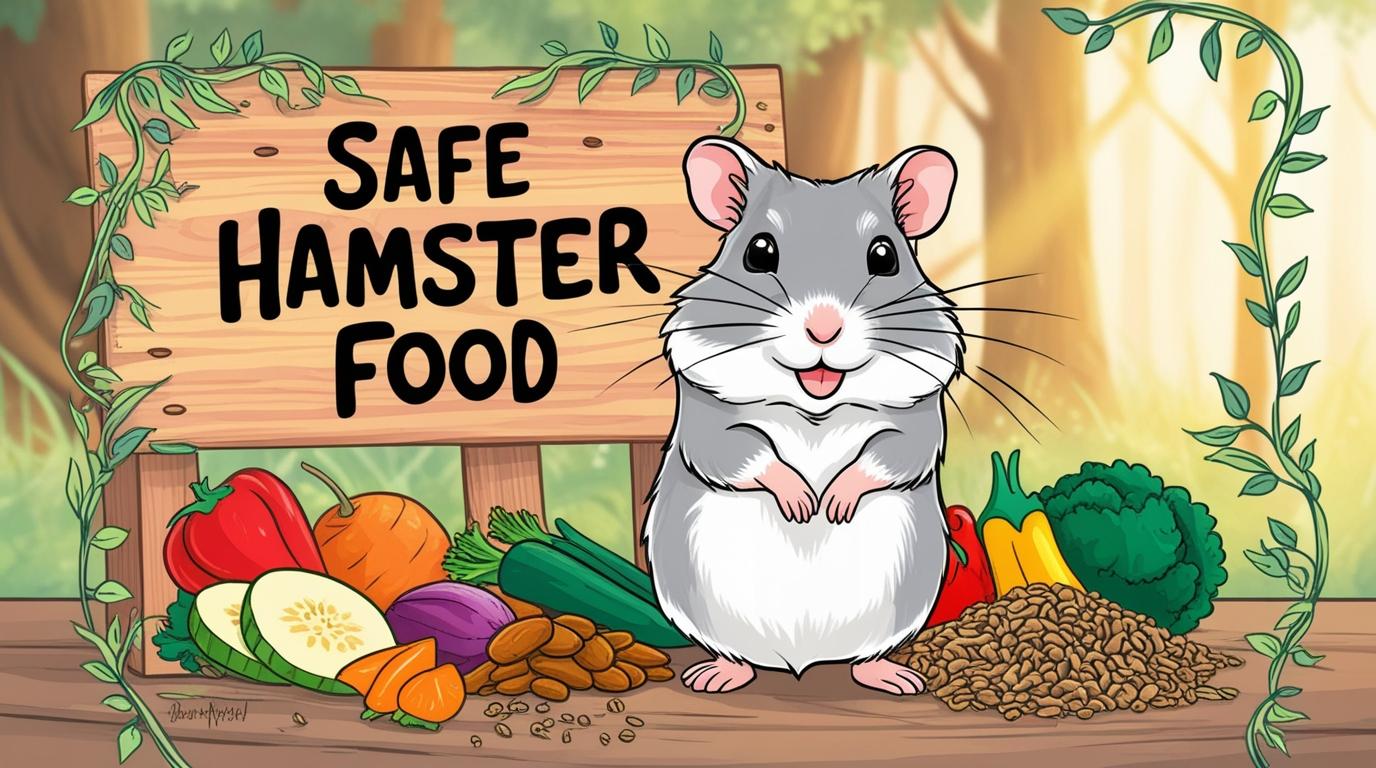
Hamsters can eat a surprising variety of foods, but it's important to know what's safe and unsafe for these tiny creatures. Providing your hamster with a balanced and nutritious diet is crucial for their overall health and well-being.
The Importance of a Balanced Diet for Hamsters
A hamster's diet should consist primarily of a high-quality hamster mix that provides all the necessary nutrients, including protein, fiber, vitamins, and minerals. This mix should make up about 80% of their daily intake. While a good hamster mix is essential, fresh foods offer variety, enrichment, and additional health benefits. Aim to give your hamster a small piece of safe vegetable daily and a tiny amount of fruit a couple of times a week.

Safe Fruits and Vegetables for Hamsters
Here's a list of hamster-approved fruits and vegetables:
Vegetables:
- Broccoli
- Peas
- Cucumber
- Spinach (occasionally)
- Cabbage (in moderation)
- Green beans (strings removed)
- Baby corn
- Cauliflower
- Celery (strings removed)
- Carrot
- Courgette

Fruits (Syrian and Roborovski hamsters only):
- Apple (without seeds)
- Blueberries
- Strawberries (in moderation)
- Melon
- Banana
- Peach
- Nectarine
- Cherries (without pit)

Foods to Avoid Feeding Your Hamster
Some foods can be harmful or even toxic to hamsters. Here's what to avoid:
- Citrus fruits: Highly acidic and can cause digestive issues.
- Onions and garlic: Can lead to serious health problems, including anemia and heart failure.
- Spices: Not suitable for a hamster's digestive system.
- Sugary foods: Can lead to obesity, dental problems, and diabetes.
- Rhubarb: Toxic to hamsters.
- Avocado: Contains persin, which is harmful to hamsters.
- Fruit pits and seeds: Contain amygdalin, which turns into cyanide when digested.
- Grapes and raisins: Potentially harmful due to the risk of mycotoxins.
- Dried fruit: High in sugar and often contain unhealthy preservatives.
- Uncooked kidney beans and other pulses: Toxic when raw.
- Nightshade family vegetables (tomatoes, eggplant, peppers - stalks only): Contain solanine, which can be harmful in large amounts.
- Raw potato: High in solanine.
- Chocolate: Toxic to hamsters in large quantities.
- Dairy products: Difficult for hamsters to digest.
Safe Hamster Treats
While treats should be given sparingly, here are some hamster-friendly options:
- Nuts: Almonds (skinless), walnuts, pecans, brazil nuts, cashews (unsalted), hazelnuts, pistachios (unsalted), pine nuts, peanuts (in shells), unsweetened coconut flakes.
- Pumpkin seeds: A healthy and popular treat.
- Sunflower seeds: A tasty treat, but high in fat.
- Sprays: Millet, dari, flax, wheat, and oat sprays.
- Insects: Dried crickets, grasshoppers, mealworms, silkworm pupae, dried freshwater shrimps.
- Dandelion root: A natural chew toy.
- Commercial treats: Choose healthy, sugar-free options.
- Chew sticks: Essential for dental health.
Fresh Food, Leftovers, and Meat
- Plain cooked meat and vegetables: Small amounts of cooked chicken, beef, or other meats without seasonings are okay.
- Scrambled egg: A healthy treat, but high in protein.
- Baby food (safe options only): Can be helpful for hamsters with dental problems or those needing medication. Avoid options with onion, garlic, or spices.

When in Doubt, Leave it Out!
Always err on the side of caution when choosing foods for your hamster. If you're unsure about the safety of a particular food, it's best to avoid it. Providing your hamster with a healthy and balanced diet is key to ensuring a long and happy life for your furry friend.
